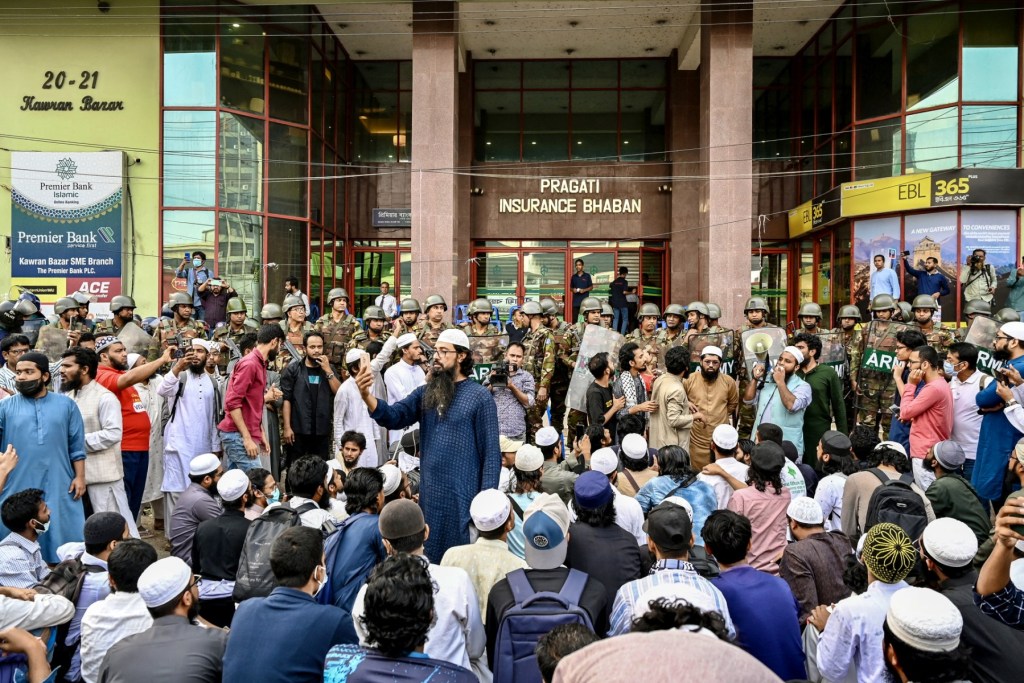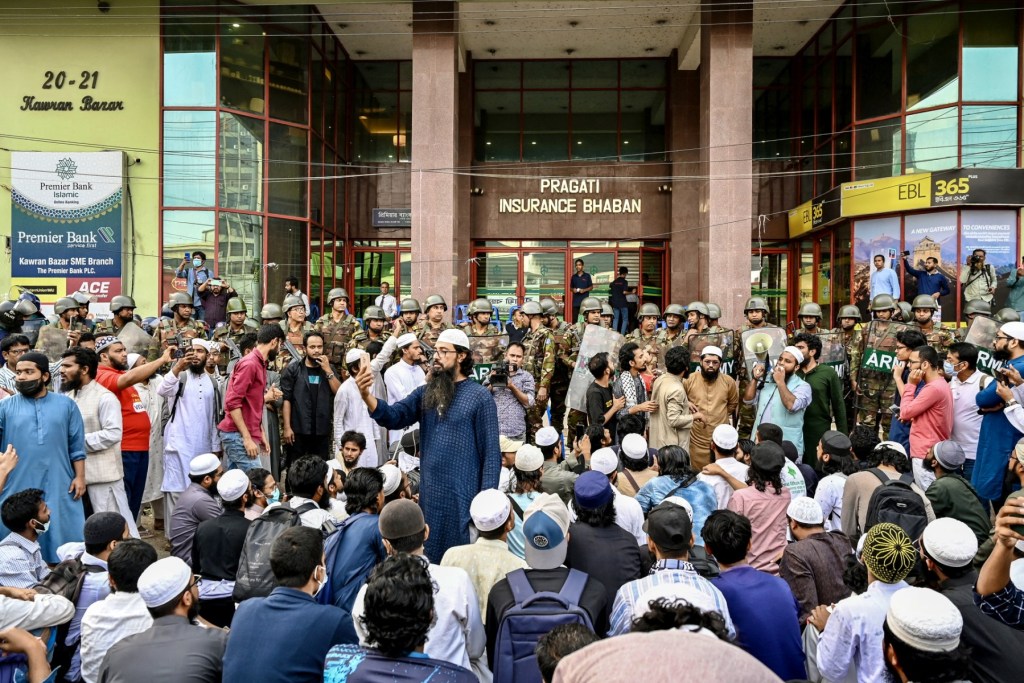On March 5, 2025, in a crowded Dhaka courtroom, journalist Farzana Rupa stood without a lawyer as a judge moved to register yet another murder case against her. Already in jail, she quietly asked for bail. The judge said the hearing was only procedural.
“There are already a dozen cases piling up against me,” she said. “I’m a journalist. One murder case is enough to frame me.”
Rupa, a former chief correspondent at privately owned broadcaster Ekattor TV, now faces nine murder cases. Her husband, Shakil Ahmed, the channel’s former head of news, is named in eight.
A year ago, Nobel Laureate Muhammad Yunus took charge of Bangladesh’s interim government after Sheikh Hasina resigned and fled the country following weeks of student-led protests, during which two journalists were killed.
Yunus promised media reform and repealed the Cyber Security Act, a law used to target journalists under Hasina. But in a November 2024 interview with newspaper The Daily Star, Yunus said that murder accusations against journalists were being made hastily. He said the government had since halted such actions and that a committee had been formed to review the cases.
Still, nearly a year later, Rupa, Ahmed, Shyamal Dutta and Mozammel Haque Babu, arrested on accusations of instigating murders in separate cases, remain behind bars. The repeated use of such charges against journalists who are widely seen as sympathetic to the former regime appear to be politically motivated censorship.
In addition to such legal charges, CPJ has documented physical attacks against journalists, threats from political activists, and exile. At least 25 journalists are under investigation for genocide by Bangladesh’s International Crimes Tribunal – a charge that has been used to target figures linked to the former Hasina government.
“Keeping four journalists behind bars without credible evidence a year on undermines the interim government’s stated commitment to protect press freedom,” said CPJ Regional Director Beh Lih Yi. “Real reform means breaking from the past, not replicating its abuses. All political parties must respect journalists’ right to report as the country is set for polls in coming months.”
A CPJ review of legal documents and reports found that journalists are often added to First Information Reports (FIRs) – documents that open an investigation – long after they are filed. In May, UN experts raised concern that over 140 journalists had been charged with murder following last year’s protests.
Shyamal Dutta’s daughter, Shashi, told CPJ the family has lost track of how many cases he now faces. They are aware of at least six murder cases in which he is named, while Babu’s family is aware of 10. Rupa and Ahmed’s family told CPJ that they haven’t received FIRs for five cases in which one or the other journalist has been named, which means that neither can apply for bail.
Shafiqul Alam, Yunus’s press secretary, and police spokesperson Enamul Haque Sagor did not respond to CPJ’s emailed request for comment.
Violence and threats
In 2025, reporters across Bangladesh have faced violence and harassment while covering political events, with CPJ documenting at least 10 such incidents, most of which were carried out by members or affiliates of the Bangladesh Nationalist Party (BNP) and its student wing, Chhatra Dal. In several instances, journalists sustained serious injuries or were prevented from reporting after footage was deleted or phones seized, including Bahar Raihan, Abdullah Al Mahmud, and Rocky Hossain.
Responding to the allegations, Mahdi Amin, adviser to Acting BNP Chair Tarique Rahman, told CPJ that while isolated misconduct may occur in a party of BNP’s size, the party does not protect wrongdoers.
Others have faced threats from supporters of different political parties and the student groups that led the protests against Hasina. Reporters covering opposition groups like Jamaat-e-Islami or its student wing, Islami Chhatra Shibir, have come under particular pressure. On June 9, Hasanat Kamal, editor of EyeNews.news, told CPJ he’d fled to the United Kingdom after being falsely accused by Islami Chhatra Shibir of participating in a violent student protest. Anwar Hossain, a journalist for the local daily Dabanol, told CPJ he’d been threatened by Jamaat supporters after publishing negative reports about a local party leader.
CPJ reached out via messaging app to Abdus Sattar Sumon, a spokesperson for Jamaat-e-Islami, but received no response.

Since Hasina’s ouster, student protesters from the Anti-Discrimination Students Movement (ADSM) have increasingly targeted journalists they accuse of supporting the former regime, which in one case led to the firing of five journalists. Student-led mobs have also besieged outlets like Prothom Alo and The Daily Star.
CPJ reached out via messaging app to ADSM leader Rifat Rashid but received no response.
On July 14, exiled investigative journalist Zulkarnain Saer Khan, who fled Bangladesh after exposing alleged high-level corruption under Hasina and receiving threats from Awami League officials, posted on X about the repression of the media: “The more things change, the more they stay the same.”
